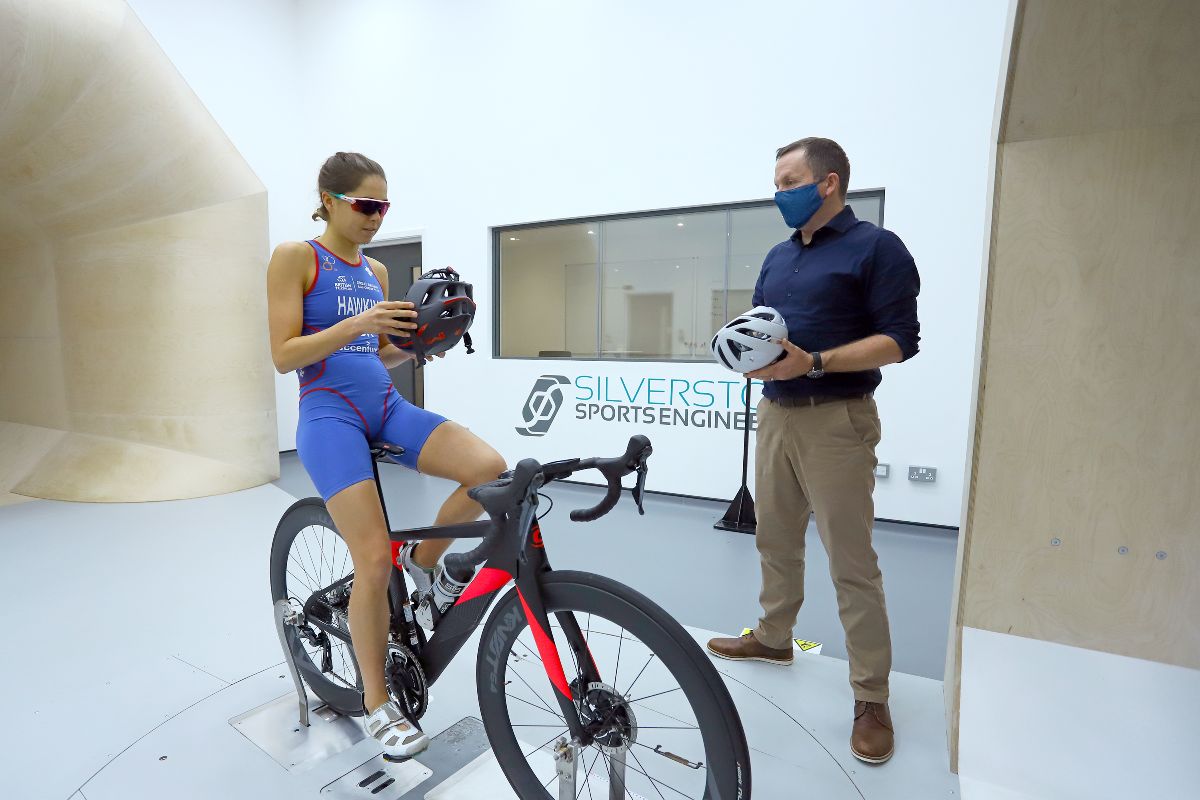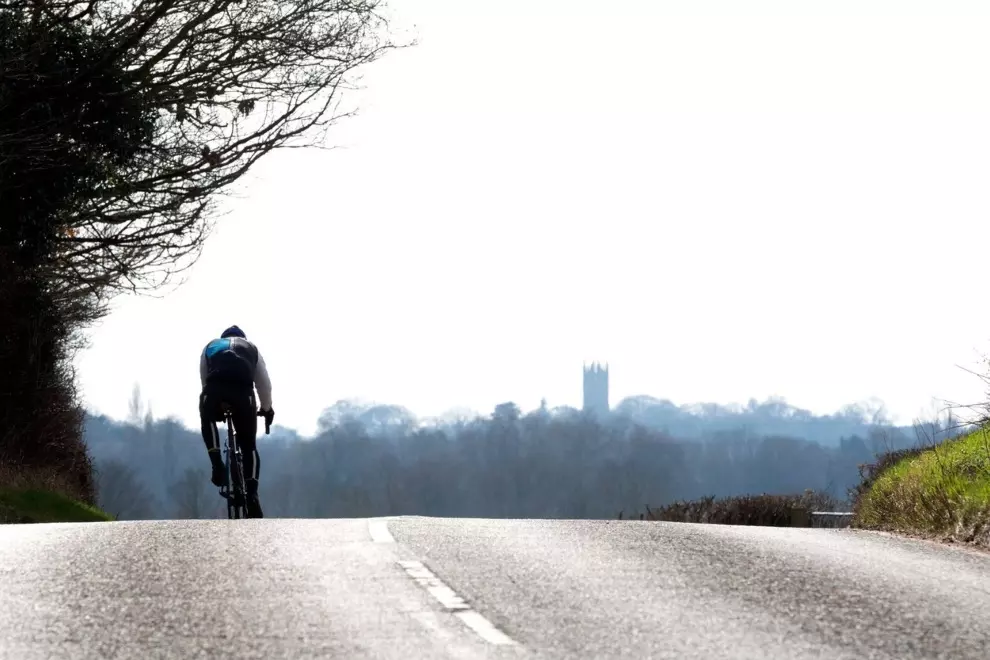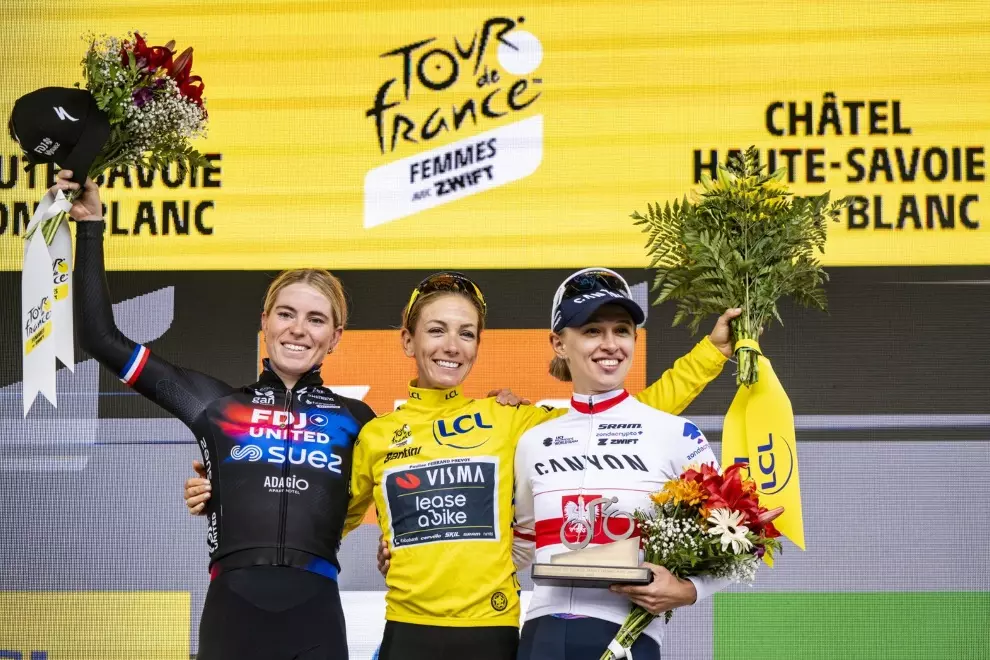They work with a plethora of World Tour teams and national federations as well as driven individuals to deliver results across the world. A part of the operation is Jamie Pringle. He is an exercise physiologist by trade and in the last decade has worked in some of the UK’s biggest sporting organisations to breed success within their athletes, such as British Athletics, English Institute of Sport and Boardman Performance Centre. His goal, like the rest of his team, is to make people faster on their bikes.

Plenty of World Tour teams uses them alongside their coaching staff to get their riders to their maximum output. In a sport like cycling, which is always striving for improvement, to make their riders go faster, the work of Vorteq Sports is essential.
In a recent interview with the Lanterne Rouge Podcast, Alex Dowsett – someone who has used the services of the Silverstone-based outfit in his latest Hour Record bid – spoke about how he implored former teammate, Davide Cimolai, to wear an aero helmet during his sprints. Dowsett knew the advantage of this due to his testing with companies like Vorteq Sports but it’s still something that hasn’t always been at the forefront of professionals’ minds.
Speaking about how his company elevates performance within the peloton and what some pros miss, Pringle explained from his home in Loughborough: “Alex Dowsett is an exception to the usual rule. For most, the Time Trial isn’t ridden a lot and isn’t very important in the grand scheme of things. He’s also had the cultural background within the British TT scene to put a focus onto that and have a personal responsibility to that.
“There is also a general continuity issue with switching teams. You get a new kit; new equipment and you are almost going back to square one. You have to build it again. Individuals [and] amateurs are doing far more in these fields than some teams.
“The touchpoints that you come to see us for are the wind tunnel and the biomechanics but there is a lot that sits behind that like CFDs (Computational Fluid Dynamics), which goes into clothing and equipment development and that capability is expensive.
“I’m lucky that I work with colleagues that are world leaders, they are some of the best bike fitters in the world and those kinds of people are in demand, which is great and that is why we are in demand.”
https://www.instagram.com/p/CV3BSZRsCuz/
But what goes into making a rider better, whoever you are? Well, Jamie has the answers.
He adds: “We take a multi-disciplinary approach. What I mean by that is it is about looking at how you ride a bike, it’s about looking at how effective you are mechanically on the bike, how is your position allowing you to generate force effectively.
“We often look at the biomechanics first, then the aerodynamics and then physiology. It’s usually those three key pieces of information to understand how the body works to achieve the physical outputs you are generating in the position that you are riding in, and, of course, always bearing in mind the event that you are going to put your talents into.
“We can do a lot in one session; we cover a lot of ground. You tend to take big steps early on and then smaller steps later on.”
An appointment that raised some heads over the off-season was the acquisition of Dan Bigham by Ineos Grenadiers. The aerodynamic specialist – someone Jamie notes as one of the best in the business – has been given the job title of Performance Engineer, as Ineos look to add ‘F1 expertise’ to their team. Going after the smaller steps as Jamie describes it. This isn’t the first time someone with specialist skills has joined a team – Marco Pinotti worked with BMC as a Time Trial Specialist for years before the team disbanded but is this a step-change in how the peloton sees modern technology?
Jamie thinks: “He’s putting so much more intelligence and thought into it than most other people. He is a top guy and one of the brightest minds that I have ever encountered. There have always been individuals like Dan and if he takes his expertise to Ineos then wow. He is one of the most perceptive individuals out there.”
Adding more about Bigham’s new role, he said: “I don’t think necessarily the best will get better but the rest will catch up. It’s not all about elevating the ceiling, it’s about understanding the journey to get to that top point. It’s a systematic, logical, organised approach to information gathering and making better decisions from it. And that’s important as that brings longevity and continuity because not all of those riders will be there forever and not all the staff will be there forever but they are putting in systems to allow and to gather the right information to make the best decisions.
“He will bring that attention to detail, which is already there. They have some of the best operators there and they have some of the best leaders as well. So, I don’t know if the fastest guys will necessarily go faster but I’m pretty sure they will.”
This technology is not only getting cheaper but this culture is also entering every part of the sport – from kits, bikes and the riders themselves. Vorteq Sports is at the forefront, and it seems as cycling embraces their world, they will continue to grow at the home of speed.




